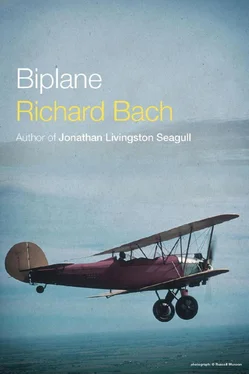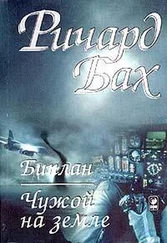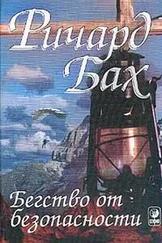Ричард Бах - Biplane
Здесь есть возможность читать онлайн «Ричард Бах - Biplane» весь текст электронной книги совершенно бесплатно (целиком полную версию без сокращений). В некоторых случаях можно слушать аудио, скачать через торрент в формате fb2 и присутствует краткое содержание. Город: New York, Год выпуска: 2012, ISBN: 2012, Издательство: Scribner, Жанр: Современная проза, на английском языке. Описание произведения, (предисловие) а так же отзывы посетителей доступны на портале библиотеки ЛибКат.
- Название:Biplane
- Автор:
- Издательство:Scribner
- Жанр:
- Год:2012
- Город:New York
- ISBN:978-1-4516-9744-5
- Рейтинг книги:3 / 5. Голосов: 1
-
Избранное:Добавить в избранное
- Отзывы:
-
Ваша оценка:
- 60
- 1
- 2
- 3
- 4
- 5
Biplane: краткое содержание, описание и аннотация
Предлагаем к чтению аннотацию, описание, краткое содержание или предисловие (зависит от того, что написал сам автор книги «Biplane»). Если вы не нашли необходимую информацию о книге — напишите в комментариях, мы постараемся отыскать её.
Biplane — читать онлайн бесплатно полную книгу (весь текст) целиком
Ниже представлен текст книги, разбитый по страницам. Система сохранения места последней прочитанной страницы, позволяет с удобством читать онлайн бесплатно книгу «Biplane», без необходимости каждый раз заново искать на чём Вы остановились. Поставьте закладку, и сможете в любой момент перейти на страницу, на которой закончили чтение.
Интервал:
Закладка:
9

MORNING. NO, NOT MORNING EVEN, just a glow in the direction from which we came last night. The sleeping bag is stowed away in the front cockpit, and with it the last bit of warmth in all the state of Louisiana. The air that I breathe steams about me and the rubber of the tall old tires is brittle and hard. My fingers don’t work well at pulling the cowling hold-down clips. The gasoline, as I drain a little of it to check for water, is like liquid hydrogen across my hands. Perhaps I should warm the oil. Drain it out and put it in a big can over the fire, the way the barnstormers used to do with their oil on cold nights. Too late now. Pull the drain plug this morning and the oil wouldn’t even pour. It would just lie there in the tank and huddle for warmth.
White lights sweep suddenly across the Parks, and rolling truck wheels crunch again on the gravel.
“Morn ing!”
“Oh, morning, Lyle. How are you, beside frozen solid?”
“Cold? Man, this is great weather! Little chill makes you feel like workin’, of a morning. You ‘bout ready for breakfast?”
“Don’t think so, this morning. Want to go as far as we can today, use all the daylight. Thanks the same.”
“What daylight you talking about? Sun won’t be up enough to fly by for another half hour. And you’ve got to have some breakfast. Hop in, cafe’s just a minute down the road.”
I should explain that I don’t like breakfasts. I should tell him that the time till sunup should be spent warming the engine. Perhaps the engine won’t even start, in the cold, or it might take half an hour to get it to fire.
But the pickup’s door is open in the dark, it is clear that everyone in this state expects a person to eat breakfast, and the task of explaining my hurry is much more difficult than stepping into a truck and closing a door. So I’ll lose half an hour, trade it for a doughnut and a quick view of a duster pilot’s morning.
A Louisiana duster pilot, I discover, knows everyone in town, and everyone in town is at the café before sunup. As we walk heavy-booted into the bright-lit room, setting the brass doorbells jingling, the sheriff and the farmers look around from their coffee to wish a good morning to the president of the Adams Flying Service. And they mean it, for his good mornings, with smooth air and without wind, are theirs, too. In the calm, his ag-planes can work constantly over their fields, seeding and spraying and killing leaf rollers and lygus bugs and darkling ground beetles, animals that once destroyed both fields and farmers. Lyle Adams is an important and respected man in Rayville.
I collect stares for my strangeness and scarf and heavy flying jacket, Lyle Adams, who lives the same world as I, who worries about engines and flies open-cockpit biplanes every day from the Rayville Airport, collects “Mornin’,” and “How’re’y’?” and “You workin’ the rice today, aren’t y’, Lyle?” My host is not an aviator in this town, he is a businessman and a farmer, and a little bit of a savior, a protecting god.
I learn, over a black formica tabletop and a cup of hot chocolate, what to expect as I fly west, to the Texas border.
“You want to stay by the road, going out of here. If you go down in the trees a mile off the road, it will be months before they find you. First part of the way, ‘round here, is fine. you got the fields to land in if you need. But thirty, forty miles out, you better stick by the road.
“Don’t know the land much into Texas, but after a while you got fields again, and a little place to come down. Weather’s been good the last days, wind picks up toward noon, be a tailwind for you. We might get some thunderstorms the afternoon, but by then you’ll be long gone. ”
If I ever have need for a detailed knowing of how to fly Louisiana, I can draw on the experience that passed across the tabletop in the café at Rayville. For a moment I am listening to a lonely man, an aviator marooned on an island where no one speaks his language. There is not another person in town who would be happy to know that tailwinds are promised today, or who would be grateful for a warning about trees in the west. My host is practicing a language he doesn’t often speak, and it is clear that he enjoys the practice.
“You get a big high-pressure cell sits up over Oklahoma, and the weather’s good for days. But with the Gulf down there, we get our share of bad stuff, too. You get so that you know the land pretty well, where the wires are, and that sort of thing, and you can work even when the weather isn’t too good. ”
By the time the buildings across the street are turning dull red in the dawn, the truck is crunching once again through the gravel, squeaking again to stop by the Parks’ bright wingtip.
“Can I give you a hand, here? Help you at all?”
“Sure. You can hop in that cockpit, if you want, Lyle, while I crank the starter. Couple shots of prime, maybe; pump the throttle. She should catch the first time.”
The steel handle of the starter handcrank jutting from the cowl is like the steel of an ice-cube tray, cubes installed. I can feel the frost of it through my gloves.
Stiffly, at the very first, t-u-r-n. (Whirring sounds, slowly, within.) And. Turn. And. turn; and. turn and. turn and, turn and turn and turn and turn, turn, turn turn turn turn-turnturnturn. pull the crank as the inertia wheel screams and clatters inside, ready to engage and slam its energy into the propeller.
“CLEAR! HIT IT, LYLE.”
One very tiny clink of the Engage handle pulled, the falling scream of the starter and one Wright Whirlwind engine blows silence into ten million tiny pieces. The president of Adams Flying Service is smothered and lost for an instant in a cloud of smoke the color of pure blue fire. Another instant, and the smoke is twisting and shredding in the propellerblast, is tumbling back toward the sun glow, through a fence, and gone.
A tiny voice, shouting from the center of a hurricane:
“STARTS RIGHT UP, DON’T SHE?”
“NICE OLD AIRPLANE! LET HER IDLE ABOUT 900 RPM; TAKE HER A WHILE TO GET WARM.”
Ten minutes of warming time for the Whirlwind, of cooling time for its pilot. Ten minutes in shouted promises to stop by if I’m ever in the country again, in assurance that I’ll be looked up if Lyle Adams makes it out to the West Coast. No goodbyes at all. A fringe benefit of flying, that: a host of friends in odd little places around the world, and the knowing that chances are you’ll see them all again, someday.
It was cold enough at ground level; now, at two thousand feet, it is colder than freezing, if that is possible. The highway writhes westward, the trees close back in through Shreveport and across the state line into Texas, almost unseen.
It’s like an ice-frozen towel, this wind, pulling and chafing across my face, never stopping. I have to swallow time and again, and it is hard to breathe. The sun crawls up grudgingly, unawake. Even after it is well above the horizon, it refuses to warm the air.
By slipping the leather gloves forward on my fingers, I discover that I can keep them warm for nearly a minute. Stomping up and down on the rudder pedals and turning the big invisible crank does nothing but transform me from cold to cold-and-tired. Below, on the road, no automobiles yet by which to gage my ground speed, though early smoke shows a tailwind. Good, a tailwind is almost worth freezing for, when one sets out to cover as many miles as he can in a day’s race.
Even so, I think of landing soon, so that I can stand still, or curl up in a ball and get warm. I wonder if it would be possible to fly an airplane without getting out of one’s sleeping bag. Someone should invent a sleeping bag with legs in it, and arms, so that aviators can keep warm when they cross the South. The invention would come a little late, though. Splash it across every magazine and newspaper in the country, put it in every sporting goods store, and even so one probably couldn’t make much money on an Aviator’s Form Fitting Sleeping Bag. Not too many aviators left around that have a great deal of need for them. Those that do will have to take second-best, rely upon an old-fashioned medium-heat G-type star, and hope that it is quick to rise in the mornings.
Читать дальшеИнтервал:
Закладка:
Похожие книги на «Biplane»
Представляем Вашему вниманию похожие книги на «Biplane» списком для выбора. Мы отобрали схожую по названию и смыслу литературу в надежде предоставить читателям больше вариантов отыскать новые, интересные, ещё непрочитанные произведения.
Обсуждение, отзывы о книге «Biplane» и просто собственные мнения читателей. Оставьте ваши комментарии, напишите, что Вы думаете о произведении, его смысле или главных героях. Укажите что конкретно понравилось, а что нет, и почему Вы так считаете.





